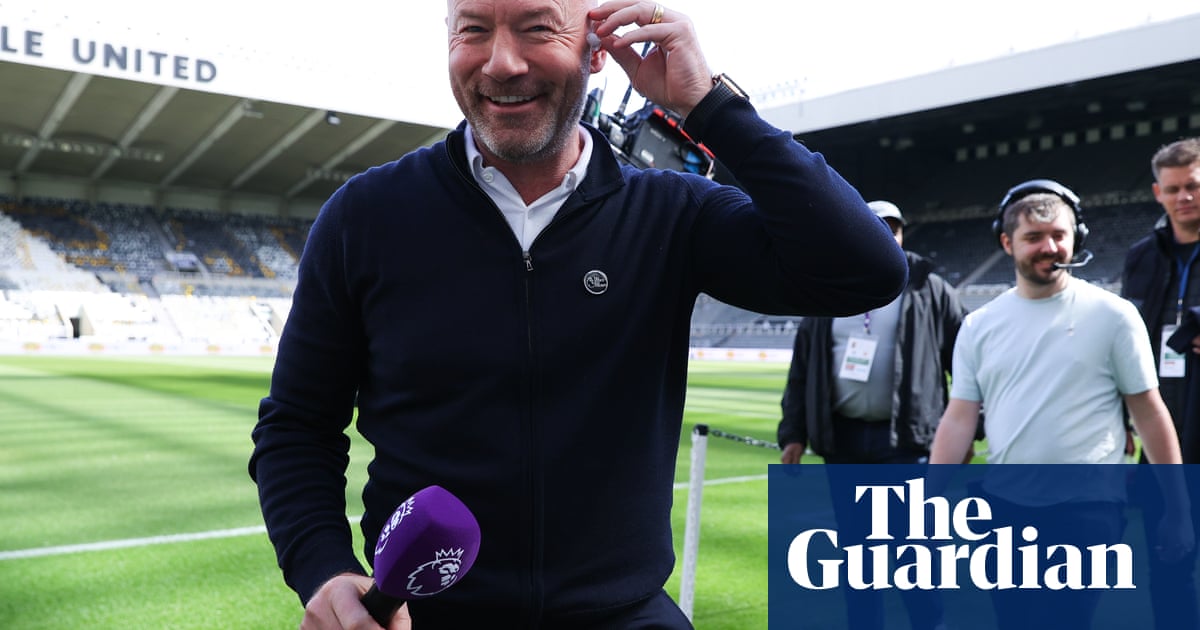Alan Shearer was nearly 30 when he experienced for the first and only time something that is now commonplace, and at much younger ages, for most global football stars: Playing in the United States.
It was, to say the least, a completely different scene than today. Shearer’s Newcastle United, then led by Sir Bobby Robson, played DC United in a friendly at RFK Stadium in July 2000 – a game the local United won 3-1 thanks to goals from Jaime Moreno, Carlos Llamosa, and “Sneaky” Pete Marino.
Shearer, who came on as a second half substitute, recalls the game as “not too serious,” but it’s a moment he looks back on as he considers the remarkable growth in popularity of football in the US in the intervening quarter-century. Particularly, he notes, for thePremier League.
“I’ve seen them queueing for miles along the block at silly o’clock in the morning, whether that’s to look at the Premier League trophy, whether that’s to come and meet the ex-players or the people at the football clubs that are that are there or whether it’s to watch the games with everyone else,” Shearer says. “It really is a brilliant atmosphere and I’ve seen it grow from years ago to what it is now and it’s been great to play a small part in that.”
These days, Shearer’s stateside trips are far more common, as he travels to promote the Premier League’s annual Summer Series. The pre-season friendlies rotate through a selection of US cities each year, and this time around they include Manchester United, Bournemouth, West Ham United and Everton playing in Chicago, Atlanta, and the New York/New Jersey area.
“I understand that it’s going to be very difficult for it to be the No 1 sport [in the US] and maybe it never will be, but I think from where football was in the 2000s when I went … it is phenomenal, it really is,” Shearer says. “Sport is something … that brings everyone together. I guess you’ve got a lot more sports in your country for your people to look at than we have over here, but that hasn’t stopped football growing exponentially.”
Whereas Newcastle’s friendly aginast DC drew about 17,000 to the cavernous RFK Stadium, summer friendlies between European teams of all types have drawn much larger US crowds in recent years. Recent attendance figures for the summer friendlies represent a dip from their heyday in the late-2010s, but many of the largest attendances in the last five years have come fromArsenal– who have finished second in the last two Premier League seasons and are looking for a way to hit another level under Mike Arteta.
“I mean, it doesn’t take a genius to work out that every attacking stat in terms of shots, goals, xG, everything for Arsenal in four positions is down from what it was last year when they finished second. Then they finished second again,” Shearer says. “Whoever’s decision it was, whether it was the manager, or whether it was the top brass whose decision was it to go into the season without having a striker, it’s cost them dearly because they’ve never really put up a serious fight to Liverpool.
Sign up toSoccer with Jonathan Wilson
Jonathan Wilson brings expert analysis on the biggest stories from European soccer
after newsletter promotion
“Is it as simple as buying a striker? It’s not as simple as that, but it wouldn’tnothave helped them if they were to get someone who’s going to get them 25 goals. When you look at Erling Haaland, apparently he’s had a really poor season. He got 31 goals. And you look at Liverpool with Mo Salah and what he’s done in terms of assists and goals, something along the lines of 47 goal involvements. Arsenal never had that.”
Assuming they do improve their attacking output, Arsenal will be among an unprecedented nine teams in the Premier League to take part in European competition next season – all of whom Shearer believes have a chance to make a deep run in their respective competitions. Naturally, he believes Newcastle could turn heads in their return to theChampions League.
“Newcastle know that they got to Champions League two years ago, but then really struggled with injuries. Having said that, they got some great results. They sampled what it can be all about,” he says. “St James’ Park is a really tough place to come for anyone. I don’t care how good you are, how experienced you are. PSG found that out two years ago when they came to Newcastle and got done, big style.”
